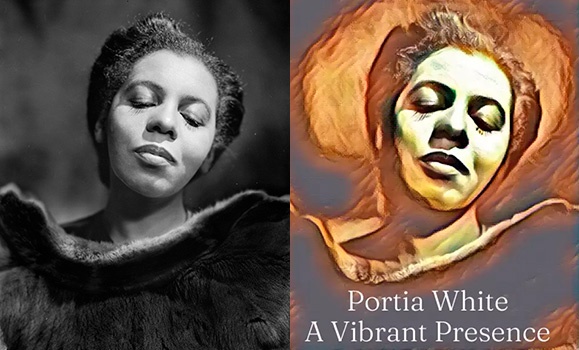One of Dal’s leading scholars of Black Canadian history will unveil a new short film about Nova Scotia-born singing sensation and Dal alum Portia White at a panel event this week.
Dr. Afua Cooper has invited a group of celebrated Canadian literary and cultural stalwarts to join her at this Thursday’s screening of her video for a panel discussion about the life and legacy of White.Ìý
White was a celebrated contralto and the first Black Canadian singer to scale international heights. But like many fellow Black Canadians, she hit roadblocks at times on her path to success because of her race.Ìý
Register now for this week’s screening/discussion:ÌýÌýÌý
The screening event — to be held at the University of King's College — fits into Dr. Cooper’s multi-year project, , which aims to help solve the problem of why there isn’t more Black history being taught in Canada’s schools.
Dr. Cooper created her eight-minute film about White with the help of N.S. filmmaker Dawn Harwood-Jones, who will also participate in this week’s panel.Ìý
Other panelists include:
- Celebrated academic and poet Dr. George Elliott Clarke, who was White’s great nephew and author of
- Sylvia Hamilton, a celebrated African Nova Scotian documentarian who made a previous film about White called .
- Sheila White, a niece of the singer.
- Abena Beloved Green, Nova Scotian poet, teacher, dancer.
White, educated as a teacher at Dal, was one of 52 individuals profiled as part of the HÂþ» Originals series throughout the university’s bicentennial year in 2018. Her profile has gone on to become the most-read article in the series by a large margin, perhaps a testament to people's interest in her story.
Learn more about White below and follow through to the Dal Originals page for the full profile:
As the first Black Canadian singer to reach world-renowned status, HÂþ» alumna Portia White (1911-1968) became one of the most inspirational women in Canada’s history. Even after winning several local music festivals and regularly singing on her father's radio show, the operatic contralto was frequently denied performance space because of her race. Not to be denied, she made her national debut in 1941, at age 30, at Toronto’s Eaton Hall. She continued to earn global acclaim, including a landmark performance at New York's famed Town Hall in 1944. One of her last performances was before Queen Elizabeth â…¡, only four years before White's death.

